masakane – let us build together (vocal score)
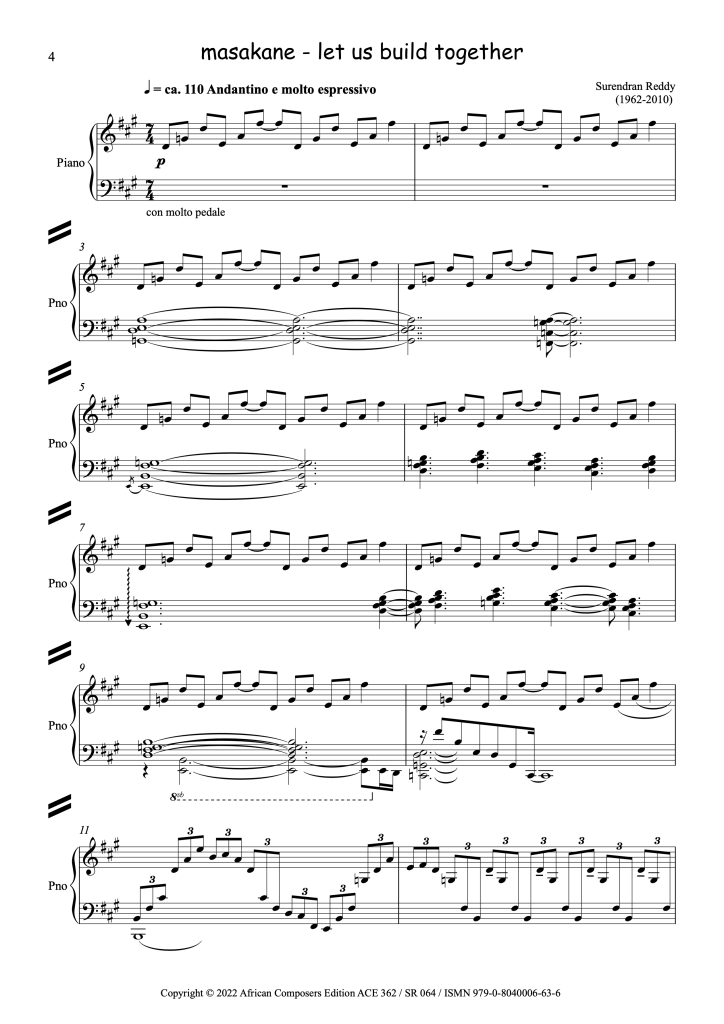
R49.00
masakane – let us build together was to have formed ‘Part 3: Family and Ownership’ of a Human Rights Oratorio commissioned in 1996 by the Southern African Music Rights Organisation (SAMRO) for performance at the Olympic Games in Atlanta, Georgia. The other commissions were from Peter Klatzow, Sipho (‘Hotstix’) Mabuse, Hans Roosenschoon, Denzil Weale, Carl van Wyk and Jeanne Zaidel-Rudolph. The oratorio was never completed in its entirety and never performed. Reddy entitled his score Masakane – Let us build together and wrote and orchestrated it in April-May 1996. Reddy’s words are based on the ‘Universal Declaration of Human Rights’ adopted by the United Nations in 1948 and the work is scored for Baritone solo, SATB choir and piano in the vocal score version.
Reddy typeset the vocal score in Sibelius in 2001, making a few minor changes. In 2022 a new full score was created for ACE by Michael Blake. This uses Reddy’s 2001 vocal score as its basis, cross-referenced with the 1996 autograph and SAMRO score. Two live performances of masakane with Reddy on keyboard, baritone Marco Vassalli, and a German choir, were given in 1998 using the original 2001 vocal score: one at the opening of the new Kulturzentrum in Konstanz and the other in Überlingen. Recordings of these and of the live electronic version are available. The new vocal score includes dynamics and expression from the three sources and is newly formatted. The sample on the right is the opening section, which is for piano only.
The programme note that Reddy wrote in 1996 (given below) emphasises how important the policy and practices of human rights were to Reddy, who all his adult life actively campaigned against racism. ‘Stylistically’, he says, ‘I have endeavoured to fuse a wide variety of influences that have been highly significant to me in the formation of my own musical language … Javanese gamelan, traditional African music, mbaqanga, classical western music’. The joyfulness of the music mirrors the dreamed-of integration of all South Africa’s people’s, in ‘celebration of their common interests’ by ‘rejoicing in their differences’, a mood that epitomises the heady days of 1990s South Africa.
Related resources
Related works
R59.00
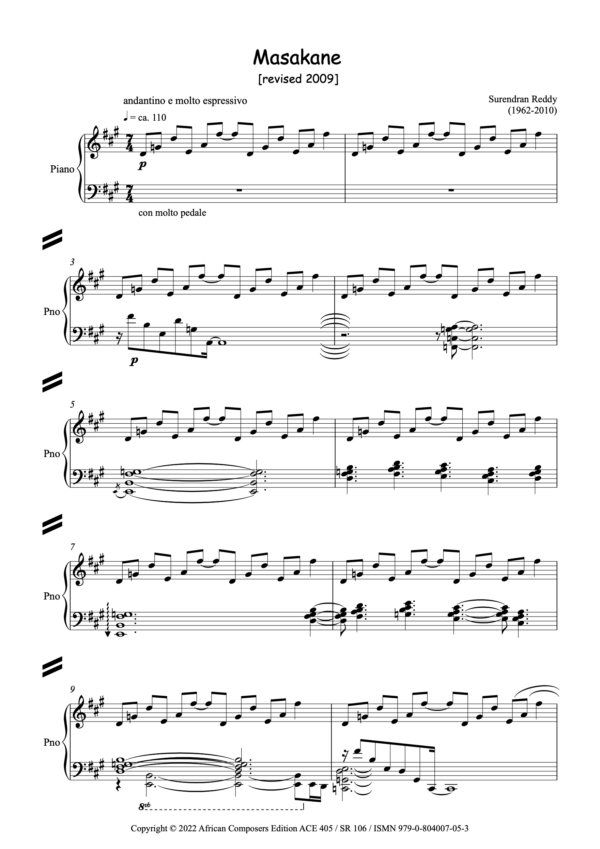
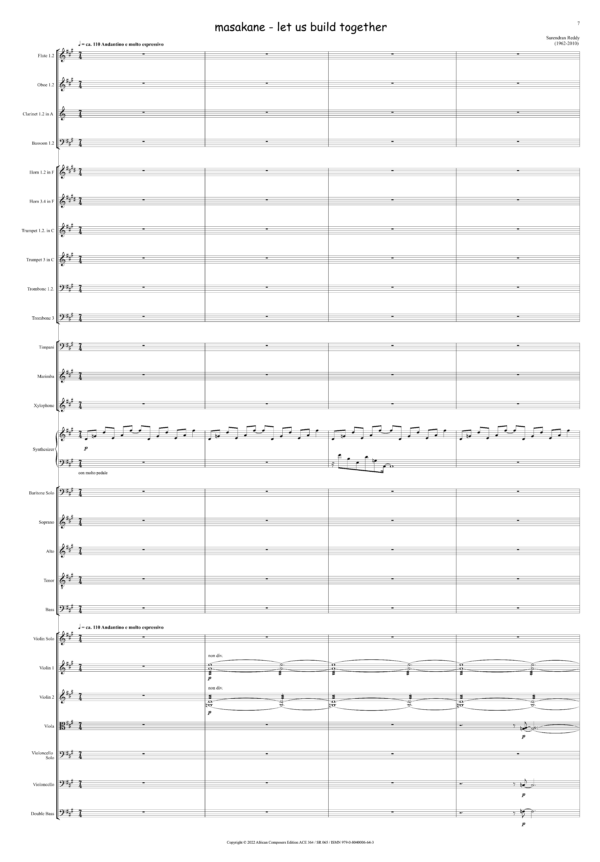
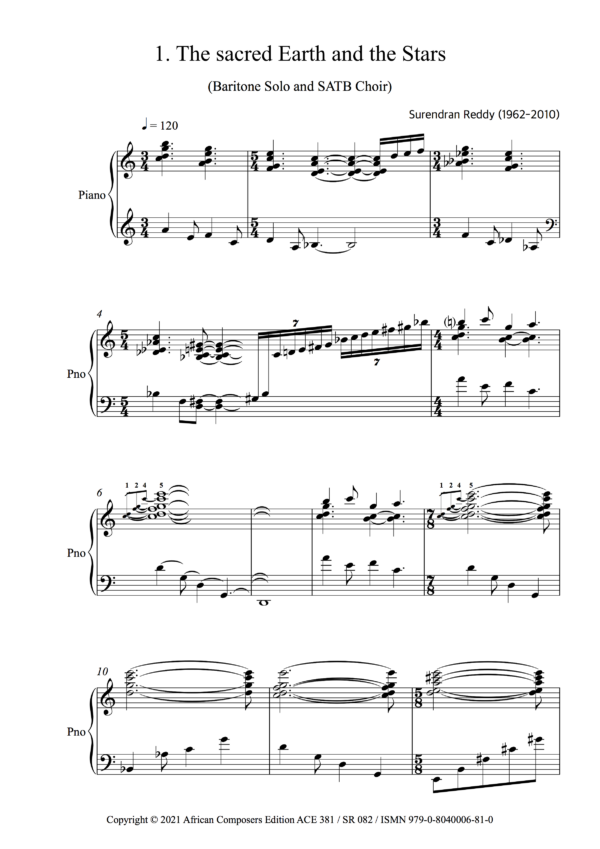
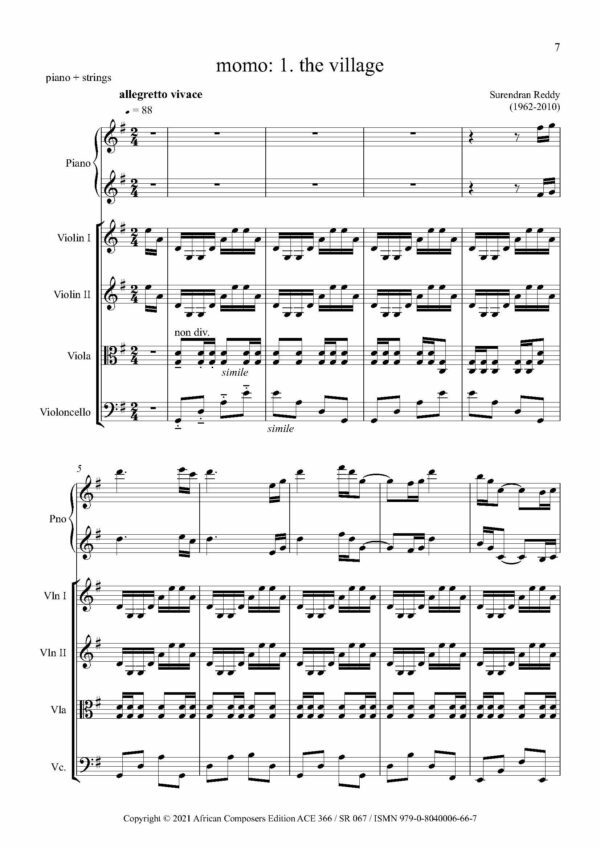
![gaia the living earth [orchestral score]](https://media.african-composers-edition.co.za/wp-content/uploads/2022/09/06210931/gaia-orchestral-score-sample-600x849.png)